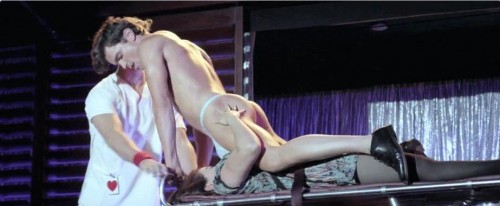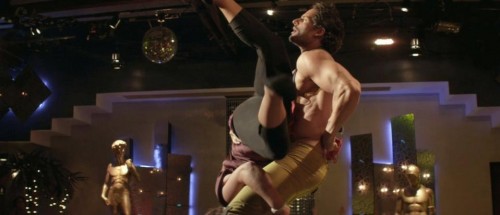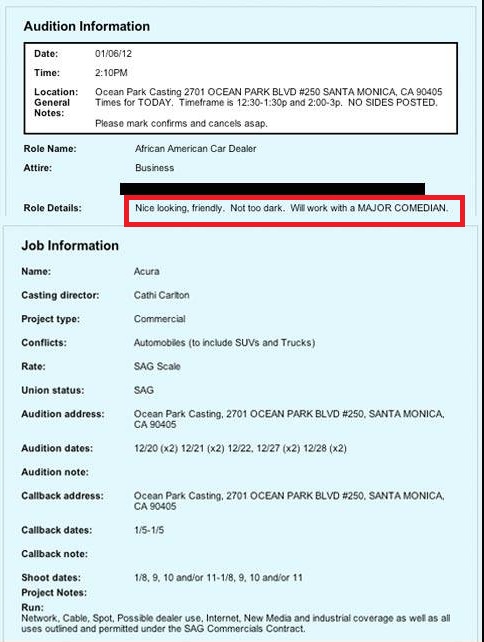Cross-posted at Caroline Heldman’s Blog. Magic Mike is “wildly overperforming” at the box office because women and gay men are going to see it in droves. Thank you Hollywood executives for finally noticing that there’s plenty of money to be made off of heterosexual female and gay male sexuality. Magic Mike purports to be a movie that caters to het women, and while it does provide a highly unusual public space for women to objectify men, the movie in fact prioritizes male sexual pleasure in tired, sexist ways.
Magic Mike is “wildly overperforming” at the box office because women and gay men are going to see it in droves. Thank you Hollywood executives for finally noticing that there’s plenty of money to be made off of heterosexual female and gay male sexuality. Magic Mike purports to be a movie that caters to het women, and while it does provide a highly unusual public space for women to objectify men, the movie in fact prioritizes male sexual pleasure in tired, sexist ways.
Watching Magic Mike was an experience. Many of the female theater-goers around me were hollering demands (e.g., “take it all off, baby!”) and grunting approvingly during dance scenes. The camera unabashedly focused tight on the dancer’s abs and buttocks, requiring viewers to objectify the male actors. I’ve written elsewhere that living in a culture that objectifies girls/women is highly damaging, and emerging male objectification is a corporate wet dream to sell products by creating new body dissatisfactions/markets.
Make no bones about it, this movie is all about reinforcing the notion that men are in control and men’s sexuality matters more. It baffles me that the filmmakers were so effective in conveying these themes in a movie about male strippers that a mostly female audience is eating up. Have we learned to devalue our own sexual pleasure so thoroughly that the scraps of het female sexual pleasure provided by Magic Mike feel like a full meal?
Aside from the questionably-empowering viewer interaction with the film, the content of Magic Mike is old-school sexism wrapped in a new package. It reinforces prevailing notions of masculinity where white men are in control, both economically and sexually, and women are secondary characters to be exploited for money and passed around for male sexual pleasure.
Most of the women in the film are audience members portrayed as easily manipulated cash cows to be exploited for money. In one scene, the club boss, Dallas (Matthew McConaughey) gets his dancers pumped up before a show by asking them, “Who’s got the cock? You do. They don’t.” Dallas has a running commentary that forcefully rejects the idea that female audience members are sexual subjects in the exchange.
Beyond the foundational theme of male control, many (but not all) of the simulated sex acts the dancers perform in their interactions with female audience members service the male stripper’s pleasure, not hers. Dancers shove women’s faces into their crotch to simulate fellatio, hump women’s faces, perform faux sex from behind without a nod to clitoral stimulation, etc. As a culture, we have deprioritized female sexual pleasure to such a great extent that these acts seem normal in a setting where they don’t make sense. While the men in Magic Mike strut their sexual stuff with a plot line that constantly reaffirms their sexual subjectivity, the few supporting female roles show women in surprisingly pornified, objectifying ways. Magic Mike is pretty tame when it comes to male bodies. Lots of floor and face humping, but no penis or even close-up penis tease shots through banana hammocks. In fact, viewers aren’t exposed to any male body part that they wouldn’t see at Venice Beach. The same cannot be said for women.
While the men in Magic Mike strut their sexual stuff with a plot line that constantly reaffirms their sexual subjectivity, the few supporting female roles show women in surprisingly pornified, objectifying ways. Magic Mike is pretty tame when it comes to male bodies. Lots of floor and face humping, but no penis or even close-up penis tease shots through banana hammocks. In fact, viewers aren’t exposed to any male body part that they wouldn’t see at Venice Beach. The same cannot be said for women.
The movie features gratuitous breast scenes galore (yes, the breasts are the scene) and full body (side and back) female nudity. One of the male stripper’s wives is reduced to a pair of breasts that are passed around when her husband encourages another male stripper to fondle them because “she loves it.” The few recurring female roles in the cast are flat with no character development, including the romantic interest, while the white men in the film enjoy extensive character development.
Other disturbing moments are peppered throughout the movie. Magic Mike (Channing Tatum) makes a thinly veiled rape innuendo when he’s “teaching” a younger guy how to approach a woman at a club: “Look what she’s wearing. She’s asking to be bothered.” The movie also asks viewers to laugh at a larger woman who hurts a dancer’s back when he picks her up (see photo and trailer below). And one of the main characters has a homophobic reaction when he’s grossed out that his sister thinks he’s gay. Also, this is a story about white men where both women and men of color exist at the margins. The Latino DJ is a drug dealer (how original), and the two Latino dancers barely talk. I was heartened and humored by grandmas and teenage girls asserting their sexual subjectivity in the theater by yelling at the screen. It is wonderful to see so many women spending money for an experience that purports to cater to our sexual desires. We want to feel powerful when it comes to our sexuality because we’re constantly robbed of sexual subjectivity through popular culture, pornography, the male gaze, and in the bedroom. One Sexual Revolution later, men are still twice as likely to achieve orgasm than women during sex.
I was heartened and humored by grandmas and teenage girls asserting their sexual subjectivity in the theater by yelling at the screen. It is wonderful to see so many women spending money for an experience that purports to cater to our sexual desires. We want to feel powerful when it comes to our sexuality because we’re constantly robbed of sexual subjectivity through popular culture, pornography, the male gaze, and in the bedroom. One Sexual Revolution later, men are still twice as likely to achieve orgasm than women during sex.
If Magic Mike is our sexual outlet, we deserve something better. When women turn around and engage in the same objectification that harms us, is that empowering? When the men we’re objectifying on the screen are degrading women and prioritizing their own sexual pleasure, and we eroticize this behavior, is that empowering? And when women eroticize sexual acts that don’t involve the clitoris/orgasm, is that empowering? I don’t have definitive answers to these questions, but I do know that Magic Mike would have been a radically different film had it truly been about female sexual pleasure. It’s high time more women were calling the shots in Hollywood and making mainstream movies that feature female sexual pleasure.
Magic Mike trailer. To see the sexual double standard, note how the trailer frames male stripping as a “fantasy” life, and imagine this term being applied to female strippers in a Hollywood trailer.
[youtube=http://www.youtube.com/watch?v=eMU7s6cwxEM]
Caroline Heldman is a professor of politics at Occidental College. You can follow her at her blog and on Twitter and Facebook.











